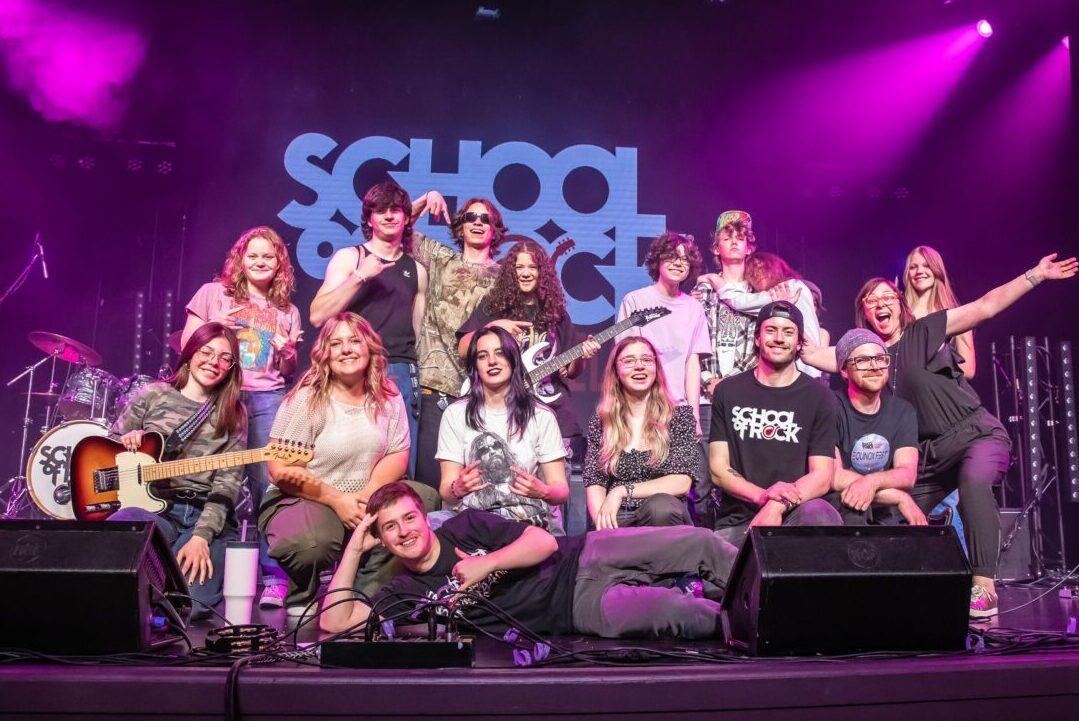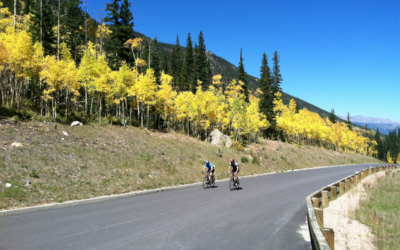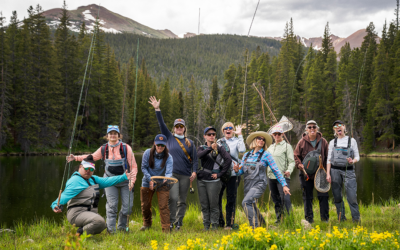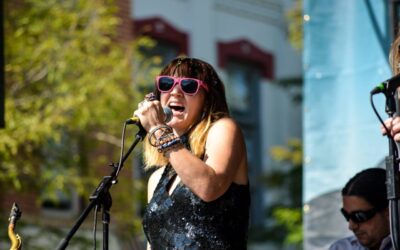When Campbell Birch joined School of Rock, she was a shy 10-year-old who loved singing but was terrified to perform in front of a crowd. However, through years of coaching and encouragement, her teachers (and fellow musicians) helped her gain the confidence to become a lead vocalist.
“There’s no room for you to have self-doubt because no one is going to let you do that,” Birch says. “When you’re with a band and you’re performing on a stage, you’re not the only one putting yourself out there.”
Now Birch, 16, sings for the School of Rock House Band, an audition-only, touring cover band made up of students at the Fort Collins and Loveland locations. She also mentors less experienced musicians who need encouragement, just like she did when she was scared to sing onstage.
“There are always new people joining; maybe it’s their trial lesson or their first time in the group,” she says. “I’ll put myself out there and say, ‘Hey, I’m Campbell. What’s your name? Let’s be friends.’”
Seeing musicians like Birch come out of their shell and develop a sense of belonging is what School of Rock owners Chuck and Donna Silber love most about the business. They’ve seen even the most introverted kids make friends and do things they never thought they could, like perform in front of hundreds of people—and enjoy it.
“My favorite part is looking out into the audience and seeing parents with tears rolling down their face and a huge smile because they’re so proud,” Chuck says. “They say they never would have thought their 8-year-old would be up on stage playing guitar at the Mishawaka.”
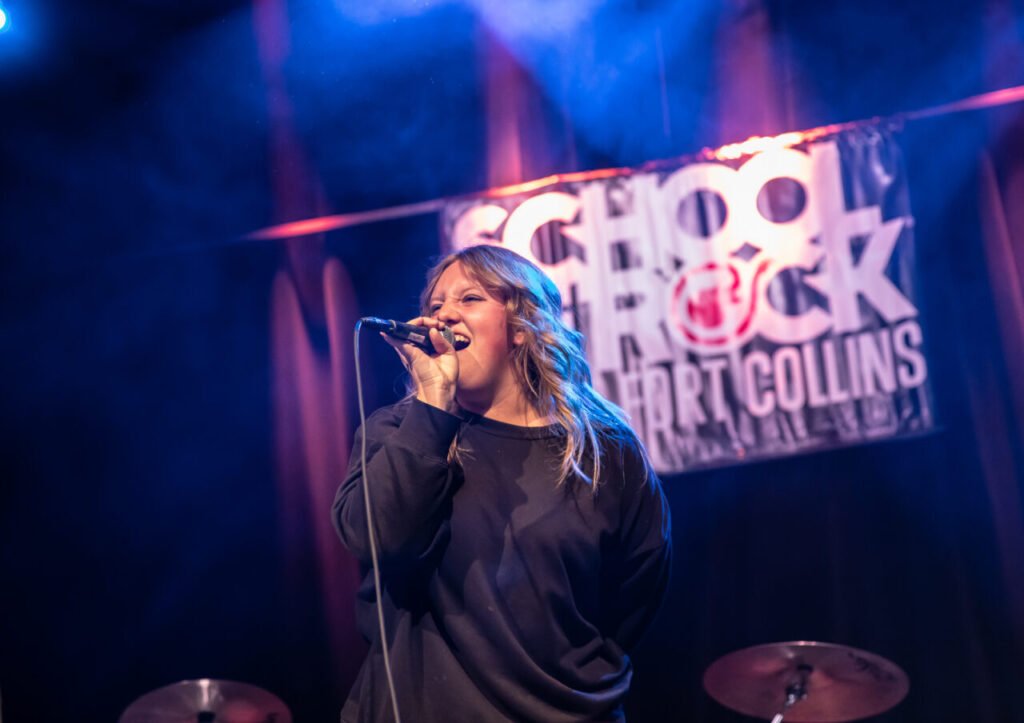
Campbell Birch
Photos by Backstage Flash
Performance-based music education
School of Rock is, in many ways, the antithesis of the traditional music school. Unlike the stereotypical (and for some, unenjoyable) experience that begins with scales, students learn the basics of a rock song they like, from Pink Floyd to Paramore to Metallica, before diving into the technicalities.
Once the interest is there, the learning comes naturally, Chuck says.
After their free trial lesson, which could be as simple as plucking one string while an instructor presses the frets, students are invited to join a group rehearsal. It’s an approach Donna likens to sports; you wouldn’t sign a kid up for private basketball lessons if it didn’t include playing games, she says.
Students are divided into groups based on age and, to some degree, skill level. Kids ages 3 and 4 can join the Little Wing group to be introduced to the concepts of rhythm, melody and other music basics through games and activities in a weekly class. Rookies, or kids 5-7 years old, take a group class every week to try out different instruments.
Once they choose an instrument—vocals, keyboard, guitar, bass guitar or drums—students move up to the Rock 101 program (ages 7-11), where they take private lessons and attend a weekly band class to practice playing in a group setting. When they’re ready to play for an audience, students ages 8-18 can join the performance level and take a weekly private lesson, attend group band rehearsals and perform at local venues such as the Aggie Theatre, Avogadro’s Number and The Lyric. Every show is a full production, earplugs and all.
“People will come in and be like, ‘I don’t need those. Isn’t my grandson just going to be on the stage by himself playing drums?’ I’ve had to explain to them, ‘No, this is a real rock concert. It’s going to be loud.’ Afterward, they get it,” Donna says.
Musicians of all skill levels play together at the performance level, an arrangement made possible by the “School of Rock Method,” which allows teachers to manipulate thousands of rock songs to have basic parts for beginners and more challenging parts for advanced students. That’s where the mentorship piece comes in; every advanced musician has a less experienced “buddy” to encourage as they practice and play in front of live audiences.
Students at the performance level are grouped into show themes based on instrument and preference, from “Best of the ’90s” to “Woodstock,” and perform in several shows each season. Birch doesn’t gravitate toward rock—she identifies as an “indie, soulful type” and listens to artists like Hozier, Jeremy Zucker and Lizzy McAlpine—but she appreciates the challenge of learning songs in different rock genres.
“Last season, I did an indie show, and this season, I’m doing ‘Drumageddon,’” Birch says. “School of Rock is really good with adding in all of the genres.”
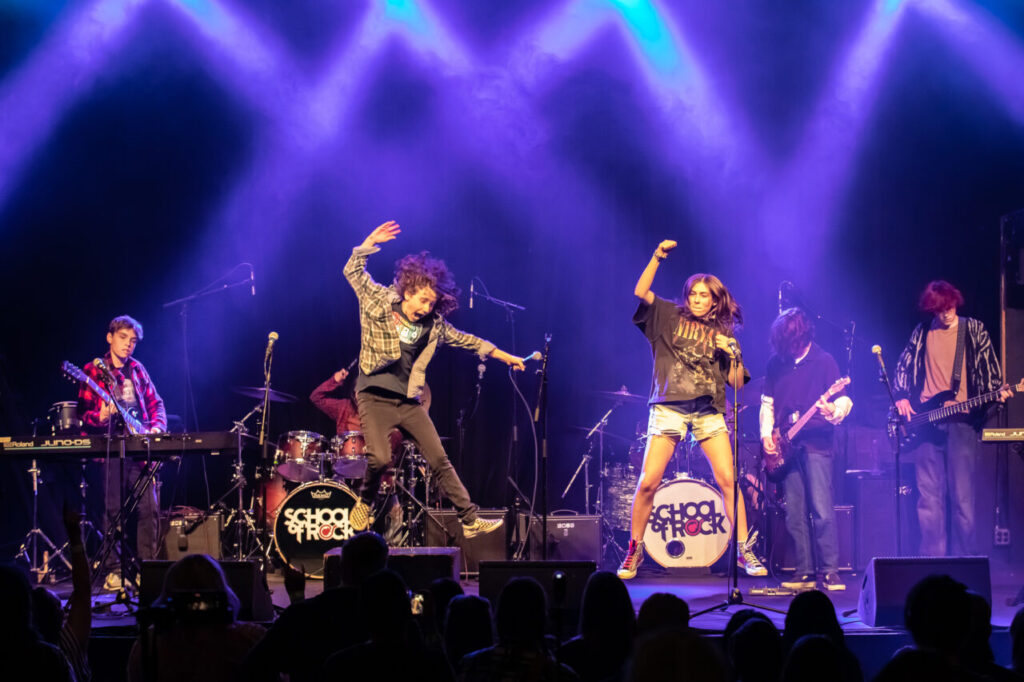
A performance band at the Aggie Theatre.
A regional impact
As the regional music director of School of Rock, part of Jordan Pasquin’s job is to divide performance-level students from the Fort Collins and Loveland schools into show themes. He also teaches drum lessons, directs the House Band, emcees season shows, does sound checks and plays drums in three bands outside School of Rock: Write Minded, Kindasoso and I Am The Owl.
Pasquin, 30, wishes School of Rock was around when he was a kid. His dad got him into drums when he was 8 years old, and he did everything from private lessons to concert band, jazz band marching band and pep band in school. All he wanted to do was play drums, so much so that his junior high band director gave him extra credit for how much he practiced. Still, anything outside of private lessons and band class had to be done on his own.
“If you were trying to play any contemporary music—pop, rock, metal, even bluegrass—you had to form your own bands and were left to your own devices,” Pasquin says. “At School of Rock, we have amazing resources in two really cool locations and the ability to go on tour and do things that you don’t really get to do otherwise.”
Pasquin joined School of Rock in the summer of 2020 (when the Fort Collins location opened) as a drum teacher after graduating from the Berklee College of Music in Boston, Mass. He’d been teaching private drum lessons for about 50 students per week all over Northern Colorado and saw School of Rock as a boon for young musicians in an area with a vibrant music scene. Now, with the Fort Collins location near capacity at about 300 students and the larger, six-month-old Loveland location at more than 100 students, he knows he was right.
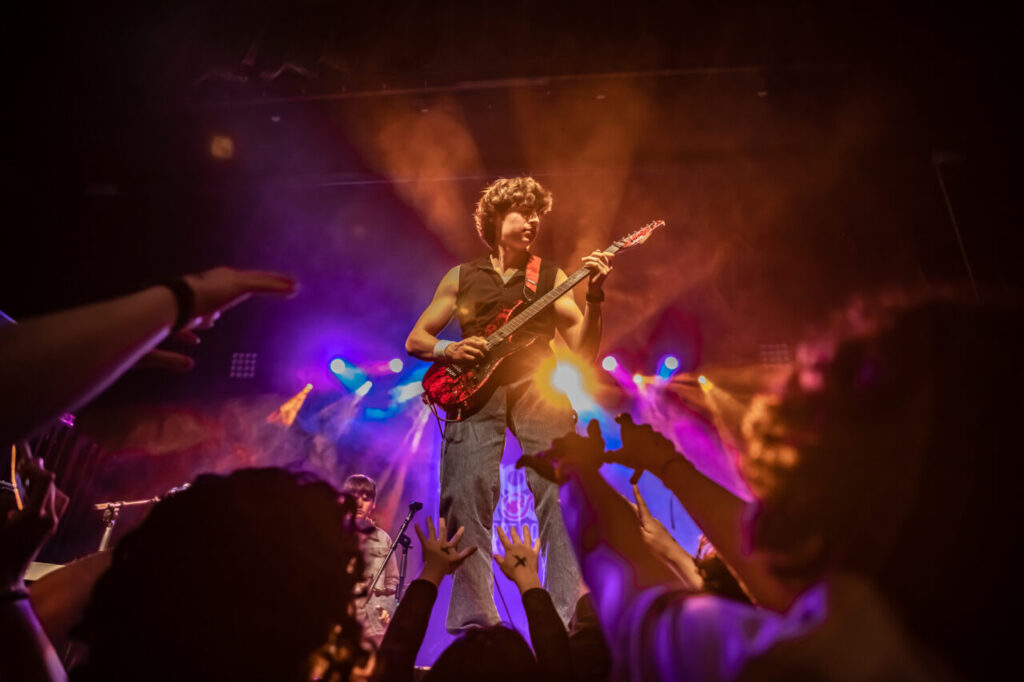
A School of Rock metal show at the Aggie Theatre.
“A big goal, at least for me, has been to create this bigger Northern Colorado music scene,” Pasquin says. “It’s always felt like Fort Collins has had a thing for music, but [School of Rock] is bringing the whole area together. It’s fun to see, as the programs grow and the kids go off into the world, there’s this community here that we’re growing.”
That community is fueled by friendships among musicians young and old (there’s an adult program too), who bond while rehearsing and performing as a group. Playing music together teaches them the importance of teamwork, respect and other social skills, Pasquin says, all things he’s learned as both a drum instructor and performer. The result is a safe space for anyone, introverts included, to get out of their comfort zone, express themselves and have fun.
“It’s my happy place,” says Birch, who has become best friends with other musicians through the school. “I know that if I’m having a bad day and I have School of Rock in my schedule, I’m going to go there and decompress and be happy. Being able to be fully surrounded by music is really beautiful.”


